
Before every election, the appeals come to be part of the democratic process. They are directed at eligible voters to take up on their right to vote. These appeals are spread by politicians, artists and acquaintances. Continue reading

Many studies have attempted to find out who the non-voters are and what motivates them. All this information is gathered in order to find a solution to increase voter turnout. Continue reading

Delegates and board of directors elections are an important part of democracy in cooperatives. Tradition and digital opportunities are well to combine as research by POLYAS suggests. Continue reading

When it comes to non-voters, politicians and media representatives ask themselves the question: why do people forego their right to vote? What are their reasons? It seems interesting to learn more about the motives for voter abstention and what could be done to counteract this development. Continue reading

Non-voters go against our understanding of democracy. People have fought around the globe for centuries to be part of the democratic process. Even today, some are still fighting for that right. Being able to cast one’s vote in an election is important for every citizen.
Continue reading
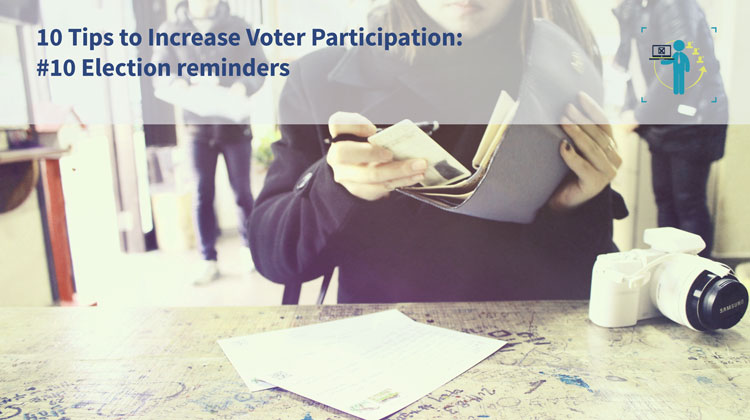
Everything you do to motivate voters to cast their ballots is part of that big arena known as “advertising”. To be precise, you, as the organiser of an election, are also an advertiser during this time.
Advertising is an immensely diverse and heavily researched discipline. Through massive studies are conducted to work out which advertisement works best when, and why. Coupled with this is another major field of research: psychology.
If you are already an advertiser, you can use knowledge from the study of the effectiveness of advertising for your election – e.g. that memories or repetitions can contribute to motivation.
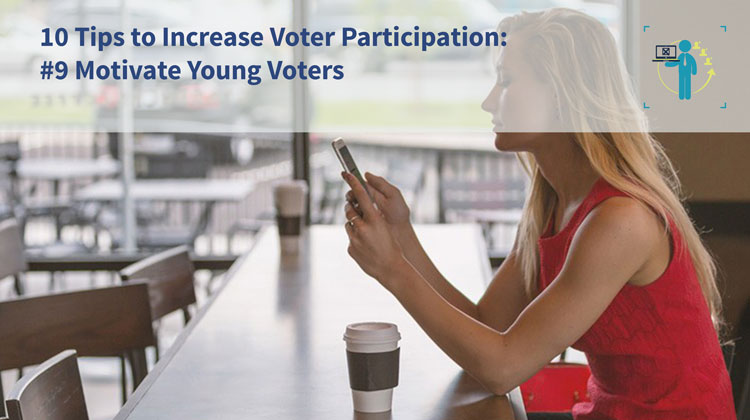
Considering the needs of modern voters – that was the subject of our fifth tip to increase voter participation. Naturally, a large number of these modern voters consist of the younger generation. Continue reading
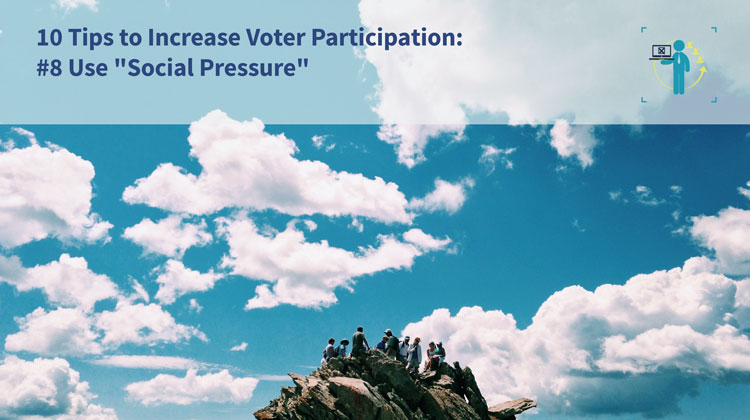
The term “social pressure” has truly negative connotations. This primarily stems from the word “pressure”, which is used in the context of force or – especially nowadays – exhaustion in the workplace. However, social pressure is a phenomenon that has been around for as long as forms of community have existed. Because, as described in […]
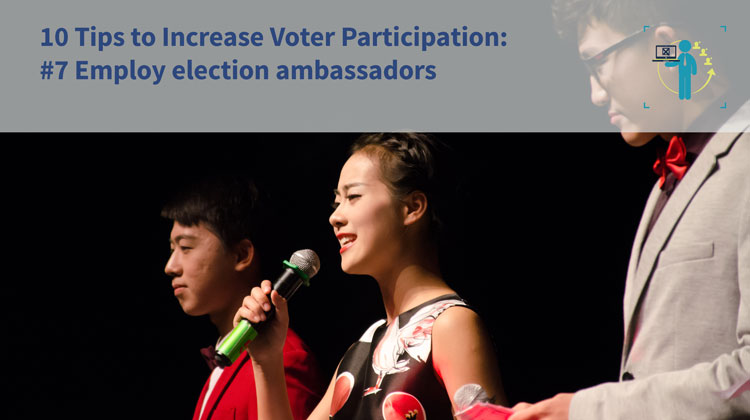
In America, being invited to vote by celebrities is already a common practice. Stars from the music and film industries like Pharrell Williams, Clint Eastwood, Madonna or George Clooney ask fellow citizens – often through the internet and social networks – to participate in elections. Celebrities from Hollywood enjoy great admiration, and idols are emulated. […]
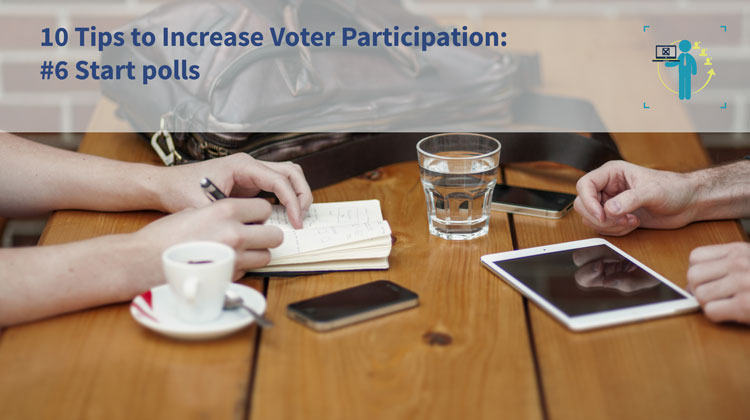
The voting period has already started and you want to get voters on board who haven’t yet cast their ballots? But circular emails and letters too often end up in the (digital) wastebasket. One reason for this is that everything you are writing is mostly repetitive. The voters already know that the election is going […]

It is nothing new that especially the younger generations spend a majority of their lives online. Almost everywhere you see people with smartphones or tablets, and 87 per cent of all German households have computers with internet access (source: Statista 2015). One may find that bad – yet it also comes with a wealth of […]
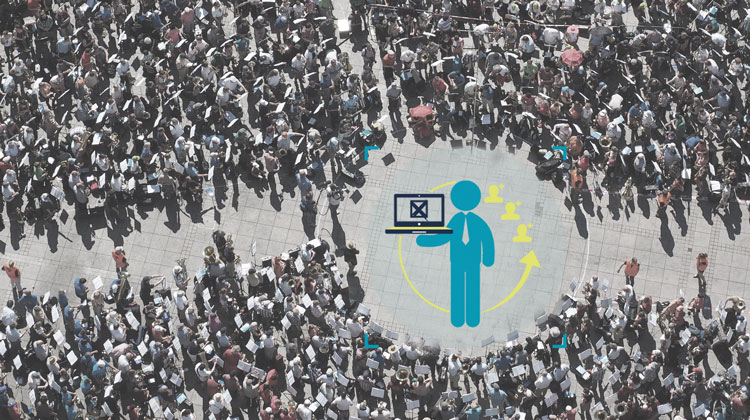
During the Bundestag election in 2013 it became clear that the imbalance in voter participation is growing. According to the study “Divided Democracy – Political Participation and Democratic Satisfaction before the Bundestag Election 2013” from the Bertelsmann Stiftung, the election results were “no longer socially representative”[1].
It became apparent that the basis of this imbalance can primarily be attributed to the social gap among the voters. To put it bluntly: Well-off portions of the population went to vote, and those with a weaker social position did not. The fact that entire social milieus behaved similarly mainly has to do with “belonging”, as do many other causes examined.